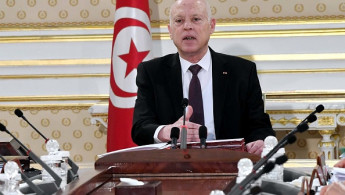New Tunisian parliament holds first session, slammed as 'illegitimate' by opposition
Tunisia's new parliament held its first session on Monday amid mounting criticism from opposition groups who say it lacks legitimacy after it was elected in a vote with a turnout of just 11%.
The new parliament was elected under a constitution that President Kais Saied wrote last year and which was passed in a referendum with a turnout of 30%.
Tunisia's biggest opposition party Ennahdha said in a statement on Monday it would not recognise a parliament emanating from a coup following elections that were boycotted by the majority.
"The constitution lacks legitimacy as does the parliament that emerged from elections boycotted by more than 90% of Tunisians," the statement said
The National Salvation Front, the main opposition coalition which includes Ennahdha, issued a statement on Sunday saying it would not recognise the new parliament.
The umbrella group said it "adheres to the 2014 constitution, which was approved by millions of Tunisians".
"[The elections] were a result of an illegal coup, and were boycotted by the overwhelming majority," the statement said, adding that it will "peacefully confront this absurd path that is about to drag our country into ruin".
Journalists were barred from attending the opening session of parliament on Monday.
Officials told reporters that only state TV and radio and the state news agency were allowed to cover the event.
As most parties boycotted the election, and candidates were listed on ballot papers without party affiliation, most of the new parliament members are political independents.
Saied shut down the previously elected parliament in July 2021, moving to rule by decree in a move that opposition parties called a coup.





 Follow the Middle East's top stories in English at The New Arab on Google News
Follow the Middle East's top stories in English at The New Arab on Google News


